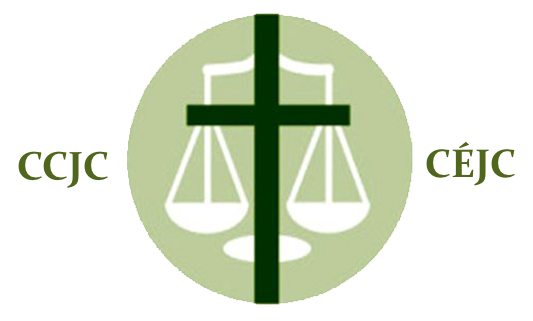Steve Bradley serves on the CCJC Board of Directors representing the Canadian Friends Service Committee (Quakers). Among other justice initiatives, Steve is involved in the Alternative to Violence Project (AVP), an international voluntary movement that organizes workshops which empower people to lead non-violent lives. Steve currently facilitates AVP workshops in prisons.
In this season of renewal and hope, Steve shares reflections on the grace that can be found in the fall and the journey to redemption.
In my work as a volunteer facilitator of the Alternatives to Violence Project, I have spent many hours within prison walls. I have sat in a circle for three days at a time with groups of prisoners, many of whom are serving life and “natural life” sentences. I have heard many stories told and many truths revealed, and have been witness to men who are in various stages of coming to terms with the enormity of the actions that led to their lengthy prison terms. Heartbreakingly, I have seen over and over and over again that most of these men were effectively victims themselves, born into an immediate world of poverty and abuse, violence and crime, addiction and dysfunction.
For most, their own fall began at birth. The wonder of it is that through their hardships, faith and hope emerged. With external support, they developed a framework around which to build their own recovery and work to restore all the lost years – not only the years lost to their prison terms, but also those years when they took away so much from so many. They frame this in large numbers, in the hundreds, and it is inclusive: the parents, spouses, children, extended family, co-workers, coaches, pastors, long-ago schoolmates of their victims – as well as the same suite of people with which their own lives have intersected. Understanding how their actions have impacted so many other people is key to holding themselves accountable for what they have done, and it is the central piece in recovering from their fall.
The prison world is unfathomably difficult. It is easy for those who are incarcerated on long sentences to despair of bringing about any improvement in their lives. Tragically, too many institutions do too little to offer lifelines to their prisoners; the model is one of punishment alone, with few opportunities for rehabilitation. Too many people released from custody return to the outside world with few if any new skills, and often without transforming the behaviors and attitudes that contributed to the habits that landed them in prison in the first place.
But for the men who engage in programming and worship opportunities, the effects can be nothing short of revelatory. Logion 58 in the Gospel of Thomas is succinct “Jesus says, ‘Blessed are the troubled ones, they have seized hold of life.’ ” This reflects what I have seen in many of the men I have worked with in AVP workshops. No serious work happens in the comfort zone, and it is easy to see this in a prison. The men are well outside their comfort zones as they work through programs such as AVP. They work hard to change lifelong behaviors, and they belie the old adage that says that most people would prefer to be transformed without having to change. The men with whom I have worked not only want to change, but they acutely feel the need to change. Even those with natural life sentences work at developing new personal skill-sets that can do two things: be applied to life in their own cell blocks, and prove that they are capable of far more than anyone ever gave them credit for, or that they ever personally believed was possible. For those who are working towards parole, they have hope that what they have gained through inside programming – job skills, their GED, strategies learned through AVP and other programs -will contribute to new perspectives and opportunities once they return to the outside.
When the men look me in the eye and thank me for making the effort to come down and work with them, and when they say “God bless you”, I know that something profoundly transformational has happened and is ongoing. I believe in my heart of hearts that they feel the mercy of God. 2 Corinthians 4:8-9 states “We are afflicted in every way, but not crushed; perplexed, but not despairing; persecuted, but not forsaken; struck down, but not destroyed”. Against great odds the men with whom I have worked have found the hope and faith to persevere. They are recovering from their fall. While holding themselves fully accountable for their actions in the past, they are hoping to restore their lost years.
Hebrews 11:1 states profoundly “Now faith is confidence in what we hope for and assurance about what we do not see”. In a world of uncertainty, it is just such a faith that allows incarcerated people- who society has locked away, out of sight and mind – to believe in their own human goodness and their abilities to rehabilitate themselves and return to their families and communities as loving and productive citizens. I am blessed to be part of this process, witnessing many people grow to feel love and compassion in their hearts and belief in their own goodness – as well as the mercy and grace of God.

